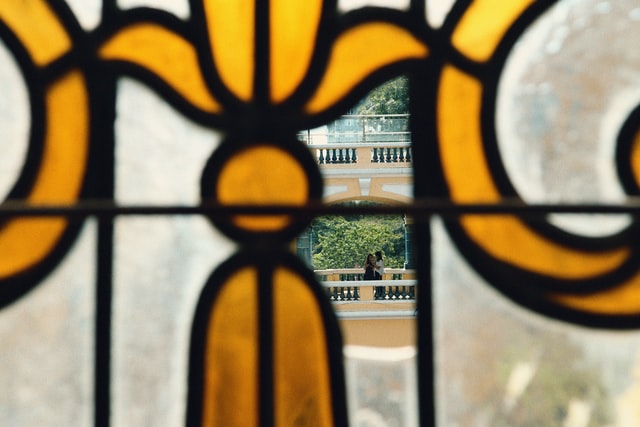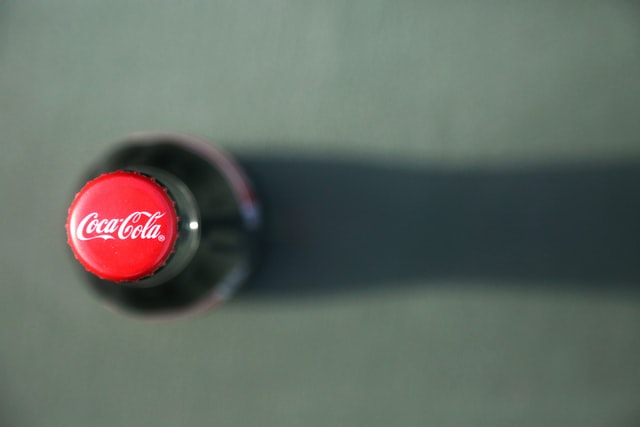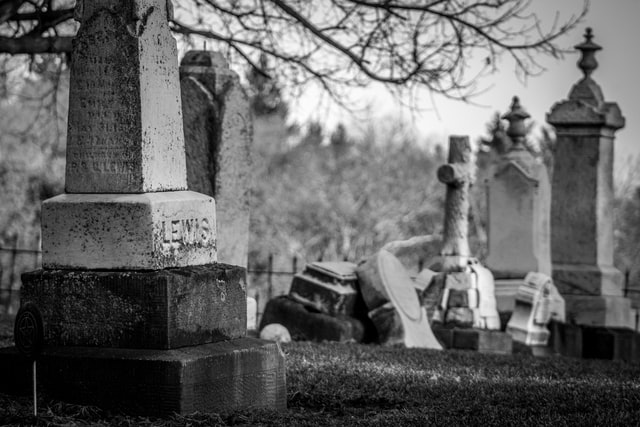Caroline McPherson
Remembered (and lauded) for her famous end-of-autumn parties (that always managed to balance the fine line between the year’s two centripetal holidays, never too thankful in spirit or too heavy in joy), Caroline McPherson had a heart of silk.
The week before last, Caroline passed away in a collapse of building scaffolding in the center of Manhattan. The cause of said tumble has yet to be determined, but her sister Pauline McPherson-McPhee believes it was Caroline’s crushing amount of love for life that tested the building’s support system, and ultimately won.
Caroline was stubborn, but only stubborn in the name of love. She nearly married three times—once to a small business lawyer, once to a juice salesman, and once to a vegetable farmer—but all three times she found herself kicking at the breaks because something else was waiting for her: New York City.
The lawyer flew to New York City to donate his time to the excavation team working in the building’s rubble.
The juice salesman was last seen drinking red juice outside the McPherson home, chanting indecipherable prayers as he held up bottles of said juice.
The vegetable farmer has created a donation box for Caroline’s mother, Ms. June McPherson, requesting non-vegetable food products so he can cook vegetable and non-vegetable meals for the McPherson family, which solely consists of June and Caroline’s dog Mupp, both of whom have stopped eating.
Sandra S. Saunders
A baker, sewer, sister, and friend, Sandra S. Saunders was the daughter of a doctor and sister of a now-pet-shop-owner, then-aspiring-cellist. Sandie, as her friends and family lovingly called her, was honored by her sister via a request to print the ‘i’ in her nickname with a star replacing the dot. Unfortunately, our publicationcannot stylize the typeface in that way, but the request has been duly noted and respectfully withheld.
As a valued member of the textile community, Sandie had a large group of friends in a knitting group, many of whom “kept her going,” according to Whitney Clark, president of Nightly Knitters Group, Inc., LLC. One short week before the scaffolding collapse that took her life, Sandie had been brokenhearted by a man she told her relatives (and friends in NKG, Inc., LLC.) she would marry in the nearest future.
According to Suzie Klein, the woman who shared an office with her who was out on a sick day the day of the collapse, said, “He was the best thing that happened to her in the last two and a half years; she floated on happiness in every moment of every day because of that man. Then he walked away. I wonder what he’s thinking now that she’s gone.”
When reached for comment, the man in question, Harvey St. Quinn, a lawyer of prestige for the City of New York, said, “She’s dead?” After, he slid down the backside of his mahogany office door, rolled up his silk tie and stuffed it into his mouth to muffle a scream, and wept silently for twenty-five minutes, eventually coming-to completely horizontal on the rouge carpet in his office in a puddle of self-inflicted sorrow, because, as Sandie’s officemate Suzie noted, “If he hadn’t left her like he did, I don’t think you’d be here asking me questions about her death. They would’ve been on their honeymoon that day.” Mr. St. Quinn emerged from his office, stark-faced and subtly shaking, and in the midst of profuse apologies (up to and including: “What have I done, why did I leave her, how did I make this mistake, when will I forgive myself [can I forgive myself], who am I?”), Mr. St. Quinn knelt to the floor and whispered her name over, and over, and over.
Editor’s note: Mr. St. Quinn started a GoFundMe to raise funds for NKG, Inc., LLC., as they jointly knit a quilt in Sandie’s honor; expenses include quilting supplies and shipping/postage to send the quilt across the continental U.S. to be knit by any member interested in participating.
Thomas “Moss” Tomlin
Moss was fascinated with life’s habit of turning on a dime. How irrelevance spun—in one full circle—to permanence. As a kid, Moss asked his parents from where the nickname “Moss” originated, especially when starting with “Thomas” as its base, to which they replied, in jest, “Like garden moss, you’re always there, whether we like it or not.” Moss’s wife, Petunia Dash-Tomlin, joked that his parents did him a favor by prescribing Moss as his nickname versus schoolyard bullies developing a nickname on his behalf.
Moss spent a majority of his time daydreaming about moving to the countryside. He thought a lot about quiet, and how quiet starts, and where quiet begins and where quiet ends. Mrs. Dash-Tomlin posits that Moss was quiet up until the moment he died, rendered silent not by fear but by finally hearing the answers to his pile of quiet questions.
Mrs. Dash-Tomlin would like to note a few things about Moss: she knew she loved him the moment she heard his voice, and the casual greatness in its natural vibrato. In the beginning of their marriage, she dreaded the ends of nights like a crow fears the end of autumn, and at the end of their marriage, she dreaded the thought of his death like a woman dreading the thought of her husband’s death. Mrs. Dash-Tomlin would like to call specific attention to Moss’s delicate eyes and the equally delicate manner in which he saw everything and everyone. Winter was his favorite season, but she loved him with the hottest day of July. She wasn’t much of a writer, but she tried to write poems for him and when he slept, she whispered them to the silence of their room (“With you for miles / I am here” was her favorite line). Mrs. Dash-Tomlin, who would like to be referred to as Pettie from here on out, would like to note that Moss was a slice of peach pie and even on his worst days was a three-day-old slice of peach pie. If he had had the opportunity to live on a farm, he would’ve loved every moment: quiet expanding outward like a halo across tuba-brass fields, quiet rising on the back of the sun, quiet in what he heard when Pettie read poems to him in his sleep.
Pettie would like to note that Moss had an insatiable need to not be disappointed in anything—not when a season failed its quest to ripen its crop so when he bought it from the store it would be ready within two and a half days, not when a restaurant was too full to be seated, not when they couldn’t have children, and certainly not when he died. But it is she who is disappointed now, when her husband’s obituary suddenly became about her—disappointment is never intended, her mother taught her. Disappointment is always welcome but never invited, she amended for herself. Disappointment has a room in your head, but you mustn’t furnish it, Moss revised.
Jayda Linnea
One of Jayda Linnea’s favorite things about the universe was the banana peel’s ability to hold a secret. Her father wrote messages on the bruised crescent for her to find during lunchtime at school. Love U. C U LTR. U R MY MOON. As an adult, she published a book of poems titled You Are My Moon (In/And Other Words To Live Through The Dark).
Why Jayda loved the city her family will never know. Why she loved spaceships, roasted summer corn, sleep (in excess), small chat with bank tellers, poinsettias, and all sixty-four colors of crayons—these things they might begin to understand.
Jayda’s relationship with her partner was taut; what started as the Christmas-bowed puppy of everyone’s under-the-tree dreams became the downtrodden family dog lying in wait by the porch door to charge at the fence and set itself free when the owner (Jayda) looked away. But let their story be for another time.
Every day, Jayda kept a journal of words in her pocket or in her purse or under her sleeve or in the elastic band of her brassiere, in which she jotted down a word or two. The journal will be displayed at her wake. Donations in memory of Jayda can be made to Merriam-Webster’s ever-going fund to assist in teaching the youth how words are an ocean if you learn how to swim.
Their Story, at Another Time
The first line in Jayda’s obituary should’ve included how she was a poet who saw a missed train as a secondhand arrival for someone else, and died when a building’s scaffolding tumbled down, after watching a man tempt death, albeit unsuccessfully.
But—before the obituary:
A man sat on the ledge of the NQRW platform in Times Square on the morning of Jayda Linnea’s last day.
The morning felt birds-eye from the get-go, Jayda experiencing an already-haggard Manhattan morning neither here nor there but where a rogue crepuscular pigeon rests before dawn, observing the stoplights alternating at a pace slowed by morning, debating when to swoop in to snag a crunch of lemon agave muffin from an innocent passerby.
Everything felt just out of view while still remaining in view—an awful paradox, she realized, when the man knelt on the swiss cheese stripe running along the length of the platform.
Not many months before this, Jayda went to a poetry event sponsored by the MTA and the chairman of the board introduced the poets scheduled to read. After name-dropping for approximately four minutes, the chairman recited a poem.
“This may come as a shock to most of you,” he said, looking across the crowd with a knowing smile, “especially to my coworkers—and no, I’m not retiring just yet.”
A light buzz followed a sardonic set of poetry-snaps.
“I wrote a poem on the subway ride down here and I’d like to recite it.”
Jayda’s patience for impromptu poetry written and/or recited by people who did not appreciate poetry lived somewhere in the final swirl of water nearing a drain. She didn’t care to remember his poem. It sounded like sour lemonade, or being nauseous in elementary school, or more specifically, the helpless feeling of requiring dire assistance from a school nurse after drinking gone-bad lemonade when parents are an entire phone call away.
But on the morning of her last day, when the man tossed his feet over the ledge of the platform, promptly escalating the situation from kneeling-as-if-tying-shoelace to enacting-possible-death wish, Jayda remembered a line from the chairman’s poem:
A subway has an engine and in my heart I have my heart.
A heart doesn’t have a heart, she thought when she heard the line read aloud. But this man might throw his heart in front of an engine.
Still birds-eye, she noticed the lack of movement from anyone else on the platform. She thought what she’d read about bystanders must be true, having never been in a situation in which she’d have to consider bystanding. Later, if she were to tell the man who loved her about what happened that morning—a man nearly jumped to his death in front of her, one of those horrid newspaper headlines come alive, a horror story blown into frame, a life lost while other losses lived—would she have remembered the detail about no one reacting?
A guy in a full tweed suit and hat emerged from an until-then invisible door along the wall. Jayda used one of the recherché MTA-provided public restrooms in a subway station a week earlier. The faucet in the tiny magician’s box knew nothing about stopping and everything about running dry.
Before she left Iowa for New York, her mother called her rough-hewn. Her father said she was an avenue with no streetlights: long and nimble and traveling somewhere without seeing an inch in front of herself. Years prior, in a college course called On Poetry & The Expanding Sense Of Self, a professor called her “Genius.” Once, a flight attendant said she had beautiful hair, rivers of hair.
After hesitantly plucking a music bud from his ear, a businessman nudged his Gucci loafers closer to the ledging man and gently shouted, “Hey.”
The man on the ledge glanced over his shoulder, scanned the area as if waiting for a courier to deliver an important package, grimaced, and shook his head.
“It’s been too long a day, man,” he said. “Too long a night, too. Too much of everything.”
The man in Gucci stepped closer and extended a hand. “Hey man, come on, let’s move away from the edge.”
“It’s about time I go.”
The man hovered his body above the platform, pushing the palms of his hands into the STAND BACK FROM THE yellow line. She couldn’t imagine witnessing this man’s death on the tracks, but also couldn’t imagine moving her body at all. Not one nerve moved as the scene unfolded, tugging her in as a bystander in a plot rife with them.
Overcome by an angel (or ghost?) haunting the MTA, the man on the ledge suddenly launched himself to his feet.
“I won’t,” shouted the man.
The man in Gucci held his chest in place with the palms of his hands. Jayda counted to five in her head, twice. Everyone else stood without the hint of a quiver. The man walked off, disappeared around a grimy pillar, into a crowd that didn’t know this group’s brand of anxiety.
The journalist who covered the incident on the NQRW platform (“Manhattan Man Attempts To Throw His Life In Front Of W Train”) was the same journalist to cover the initial report of the crumbling scaffolding. To his editor’s chagrin, the journalist described the sound of the shifting rubble as “a schoolyard at its busiest hour: hysterical shrieks from a jungle of metal.”
Despite the debacle on the platform, Jayda arrived at her office not a minute later than usual, some strange proof that not everything lasts as long as it feels.
These were the tasks Jayda accomplished before the building began to shake: switch from sneakers to stately loafers, pour office coffee over office mug of ice, peel quote-a-day calendar page (“One must not dread what they think they might lose.” —Max S. Bloom, writer & philosopher), email with four cohorts, research the word “receival” after suspected improper usage in an aforementioned cohort’s email, renew The New Yorker subscription, contemplate phone call to father, decide not call the man who loved her.
The man who loved her had a bizarre fascination with the magician’s trick of sawing a person in half.
“There’s so many variations of it,” he explained to her over dinner the night preceding this. “Modern audiences don’t appreciate the illusion like they did in the past, but the fact that there are so many ways to practice the trick is what makes it a true art form.”
“The end result is the same, no?” Jayda asked, two-thirds-hearted in this conversation.
A single ice cube roamed and clinked in her glass of white wine as she rotated her wrist, the cube an awry metronome to a dinner conversation with a man whose love for her created an absence in her. His excitement for this particular subject shifted his shoulders forward and leaned his body close to the plastic flame of the perpetually flickering candle on the table between them, casting his face with artificiality against his genuine excitement about the idea of a body getting fake-cut in half.
“Yeah, I suppose. But the way in which the magician propels to the end…that’s what’s so magical.”
The rosemary on her chicken dish was accidentally thyme.
“A body sliced in half is a body sliced in half. I think the only magic about it is how it turns something impossibly grim into a performance.”
Jayda was Googling the variety of ways a body can be fake-sawed when the building first shook. The surface of her iced coffee jittered around the lilypad ice shards.
The man who loved her was right—there are many ways to go about completing the illusion—and for a moment she thought about calling him as coworkers around her buzzed with jittered pleasantries about “everything being okay.” She didn’t know it and never would, but the call she didn’t make would have been the last time they’d speak, and also the last time she’d speak to anyone.
After the building’s first tremble, smack in the center of a city that was immune to symptoms similar to an earthquake, a few people in her office stood up from their desk chairs and read each other’s faces for acknowledgement. After the second, some employees outspread their arms like surfers finding balance on the slow hill of a wave, the office manager pressed her body against a wall, and an accountant fled. An intern lit a cigarette. Not thinking or looking at the screen, Jayda’s fingers typed the word “tremor” into a sales spreadsheet. There was a science behind earthquakes, some equation of magnitudes, maybe? She couldn’t recall the vocabulary words associated with earthquakes but all the words about dying rushed forward with white flags waving.
She seemed a veteran of a childhood cutting coupons with mom rather than credit card swipes without her. Before settling into an office job with a desk chair that never felt consistently comfortable even for an hour, Jayda took up a nannying job for a boy named Till (short for nothing) while studying in Columbia’s MFA program for poetry. The initial hiring flyer was posted in her upper Manhattan apartment building on the wall of slate-grey mailboxes by the boy’s mother who lived ten blocks north of Jayda. When Jayda asked who the woman knew to post the flyer in her building, politely named Square Park by impolite architects (their impoliteness defined by a single elevator shaft for a building that clearly demanded three, Formica everything, and a basement with both a washroom and a dryer room, the navigation between which proved inconvenient at its very best), the mother said, “No one; not directly, at least.”
Jayda knew herself directly. She knew her parents directly most of the time, their octagonal relationship rarely skewed with indirection over things, other than her moving to New York. The man who loved her knew her indirectly but liked to believe his relationship with her was the most direct relationship in his life (it likely was). In the early morning, when guessing between night or day was a gamble, she knew him most indirectly, after the shape of her sleep was disfigured by his insistent sleep talk and subconscious need to converse while dreaming out his dreams.
One afternoon, following a full, sleepless night of the man who loved her addressing the bedroom as though it were an auditorium of anxious graduates blindly glomming advice from a quarter-famous commencement speaker, Jayda found herself six minutes away from losing her nannying job. After sending Till off for his afternoon nap, a rush of sickness swept across her body. How she managed to get herself horizontal she’d never known, but her hands found the coppertone plush area rug and she laid herself across it, pinned the lip of the rug to the edge of her torso, and rolled herself across it two times. When Till emerged from his bedroom an hour later, he took in the sight of her on the floor for the length of a yawn and then exclaimed, “Hotdog!” like a foodman in the 1920s at a ballgame.
“There’s construction going on downstairs, right?” a sales rep asked the collective office, an open-floorplan most employees despised until this moment. The human body does not seek isolation in moments of terror.
Maybe the subway platform man wasn’t all wrong that morning. Passersby shook their heads and grimaced as the man on the ledge slunked away, sobered by the shock of not going through with his intended action. Perhaps he was only a little bit wrong to cause worry among everyone standing there, but also right in his act of taking charge of something of which he’d not had charge prior to that moment.
The third shake sent everyone running. The industrial-chic Edison bulbs swung like metronomes, trendy bean bag chairs sifted into level disks, papers shook free of folders, succulents and plants broke loose from pots; to Jayda and her colleagues, the moment was simultaneously superluminal and molasses.
The employees sprung into action, resulting in a flood of people on Park Avenue as every last person exited the building. By the time she reached the ground floor, Jayda’s body was a rollercoaster: not the body feeling the result of a drop, but the metal holding itself in place, shaking against the weight of the experience. About half a block away from the main clump of people waiting for further instructions, Jayda found a quiet spot under the shadow of the building’s scaffolding.
As the scaffolding fell, there was no rush. The block remained static as people caught their breath, but everything in Jayda’s head whizzed to conclusions: did I say goodbye to him nicely, did I unplug the coffeemaker, did I finish signing my will, do I have a will at all I can’t remember, did I have a great love, the kind of love people harvest in films and books and songs, did I have that at all, can I die without having that and what success did I have, and my father, was he happy or did he see the boogeyman under every woman’s bed and my mother, was she successful in something other than love because I know she didn’t have love especially when the boogeyman reported all my father’s undoings or were they wrongdoings, is it wrong to fall out of love with one person and use the falling from one love to propel you into a new love or is that human nature, is that mother nature, is that the only way to avoid breaking everything apart, to fall quietly from one thing to the next; if the answer is my dad was always in love but with another woman and my mom loved for most of her life but not all of it then maybe I’m a conflagration of the two, is that the right word, no, maybe I’m a conglomerate of all the love which would mean if I’m remembering my arithmetic properly I too can find love or success or make amends with the boogeyman of my heart, maybe he’ll let me confess maybe he’ll let me sleep maybe he’ll let me go.
A weatherman reported the blueness of the sky after the collapse with a cyanometer (“The sky was at forty-four today: a shade of blue so bright it is usually…unseen”). The field reporter who filmed live (although she wished to the devil it was not live) reported on the scaffolding collapse with a shaky microphone from her shaking hands, and stuttered mightily through her spiel, dust gently billowing behind her beige-suited figure as though wind over an ocean seeking the nearest sail.
The journalist offered to write the obituaries of those lost to the scaffolding: three people in total. It was inescapable, really—he assumed his editor would ask and he felt most qualified anyway; he’d seen their faces, the final expressions, the moments before a pulse vacated the premises of a body.
Years before her death, just before Jayda boarded a plane to New York, her father harped on a warning about the electricity running sprints on subway tracks.
“Be careful, the track’ll zap you like it zaps the rats: quickly.”
“If I don’t end up coming back to Iowa,” Jayda began, before her father interrupted by hugging her so-long. “Blame it on the electricity.”
The electricity in her heart, it turns out, wasn’t strong enough to save the muscle that housed it. But it was reliable enough to keep her alive under rubble, aware enough to feel the sensation of being saved when a firefighter’s hand reached toward her, his ashed jacket blurred in the foreground of her blurring vision, and kind enough to queue her lungs to release a final breath that could only be categorized as relief.
The Man Who Loved Jayda
The man who loved Jayda was told of her death by a police officer, over the phone, which he thought was pretty fucking rude.
“Do you know how much I love her?” he asked the police officer, out of shock or out of sadness he did not know.
“I’m sorry, Mr. Wyatt.”
The police officer called him ‘Mr. Wyatt’ like a five-year-old would refer to their parents’ close friend, using the first name as the name to follow the title. His name was Wyatt Mark, arguably a surname bait-and-switch.
Jayda’s body was flown to Decorah, Iowa, a town reminiscent of a movie set that lost funding halfway through: sturdy homes with well-thought floorplans lacked fresh paint, unique storefronts with names too idyllic to succeed (i.e. Edy & The Crazy Pickle Deli), people in a constant state of smiling. Decorah was a breath away from having its sheet blown off, uncovering the truth of what was there: a cloaked man pulling levers or Jayda’s father speaking rhymes or god himself, paring his fingernails over his state of un-undoing.
After Jayda’s funeral, where Wyatt was mostly ignored or avoided (like most things, he could not tell which), he walked through downtown Decorah, searching for a sign of Jayda anywhere. In his reflection? There she was. Hidden in the bricks’ grout of her elementary school? Yes. Inside the mailbox slot on the corner of her childhood homestreet and Main? He saw her algae eyes glowing within the rectangle, curling up at their corners when he gasped.
Yes—Wyatt was losing his wits. He overheard Jayda’s father say this to an aunt of Jayda’s at the repast.
“The man is crazy,” is precisely what her father said, stirring an inky coffee with a red plastic straw. “Just like the city that took her.”
Decorah was Kafkaesque. Jayda’s father was Kafka. Jayda would’ve liked this comparison, Wyatt thought, as he pulled his tie from his neck so it hung scarflike.
Wyatt wanted to marry Jayda, and he would’ve married her there in Iowa if that was something she wanted him to do. Had she lived, he wondered when she would’ve taken him to visit Iowa. In what way would she introduce him to her parents, family, and friends? Would there have been a hug from her mother and a firm handshake from her father, versus the overall indifference to his presence at the funeral, which was likely a result of their fear of facing their reality: he was the man who kept Jayda in the city that killed her.
Wyatt found a spare bench on a spare strip of Main Street and watched people pass. Not many people, he thought, maybe the fewest people he’d seen in one place since walking into a lecture hall five minutes early on the first day of a college semester.
He stood, stretched, and walked on. He stopped in Arty’s Artisan Arctic—an ice cream shop with a menu caffeinated by midwestern business owner dreams—and took a seat at the bar. The shop was a riff on the classic ice cream shoppe from decades’ past, with a steel bar top running the length of the space, guarded by an at-and-ready line of steel cherry vinyl bar stools, and walled in with time-worn photography of ice cream, kids with soft serve mustaches, and candy spilling out of jars.
The flavor selection was gently disconcerting: the amount of nontraditional flavors was too high to maintain long term. Do M&Ms not shatter after being frozen for a week? Does pretzel salt oxide cream after 72 hours? Wyatt wanted to ask Arty these things, who leaned over the counter to straighten out four cups indicating the serving sizes available. Instead, Wyatt asked for an extra-large cup of Grasshopper’s Delight (mint-chocolate-chip) with two scoops of The Worm’s Playground topping (chocolate cookies) on top.
As Arty scooped hefty piles of green-nearing-teal ice cream, Wyatt pictured Jayda’s face in the reflection of the bar, her features strewn about by the mismatched catches of light on the brushed metal surface.
A few funeralgoers had asked Wyatt about Jayda’s death, as if he had facts or figures to provide context for the thing that would keep everyone up at night for years to come.
“How did the scaffolding fall?”
“Did anyone survive?”
“Was God there that morning?”
Wyatt didn’t have any answers for any of the questions, only additional questions.
He thought a lot about the onlookers from surrounding buildings who felt the phantom shake of their corporate grey carpeted floors after hearing an excess of the usual city siren symphony; the people who saw the bricks blow out into dust as the scaffolding collapsed. Was it in slow-motion for those who watched? Did the scaffolding shift downward with the gusto of an elderly man shuffling to bingo, or maple escaping its tree, or a lover watching their just-then-ex turning their back and walking away—the kind of slowness defined in high school classrooms in June, or when the phone rings in the late, late night.
When Wyatt thought long and hard about something, he pressed his thumb and forefinger into his bottom lip until he felt the outline of his teeth. At the funeral, his gums started bleeding.
Wyatt slapped money on the counter and was off, his resolve fading. He wandered north for ten minutes and found himself amongst a slew of Victorian homes decorated with mums, pumpkins, and various multigourds. Bicycles tossed in the grass, stray baseballs scattered about lawns, a partially wound chartreuse hose snaking across a front walkway, a swing swaying with nothing at all. Wind blew across a yard and shook blond leaves into his path on the sidewalk. The galloping in his chest settled. Maybe she didn’t feel anything when the scaffolding fell. Maybe she was writing a poem in her head, or thinking of a poem, or imagining her life as poetry, something free verse and loose like her hair on Saturday mornings, dark like how she liked her coffee, warm like how he hoped she felt him in her heart.
Out of sympathy, Jayda’s mother asked Wyatt if he wanted to say a few words before the closing prayer. His selfmade speech-gone-homily went on like this:
You don’t know me, and I’m sorry for being a stranger up here instead of a warm face, like Jayda’s. My name is Wyatt, and I was in love with Jayda. Well—I am in love with Jayda, but I’m working on how to change that into the past tense. Thank you, Mr. and Mrs. Linnea, for allowing me to say a few words about the girl we knew.
Her face—specifically in the frequent moments when he told her about her beauty she chose to ignore—splashed in front of him. He took a long, deep breath for a long, dark pause.
Jayda was a poet—a beautiful one, too. She wrote poetry because she didn’t know how else to give away her feelings. I’ve been trying to find poetry in what happened to her, and I remembered a word she used all the time: “contretemps,” which means “an unexpected, unfortunate occurrence.” It also means “mischance,” which is the definition I prefer. I can’t help but wonder how all of this is not the story of an unwritten poem of hers instead of reality. I can’t stop saying the word “contretemps” in every silence that finds me, and I can’t remember who I was before her, and I can’t unhear the beauty in her last poem when she read it aloud on the night before she died, trying to work out an ending to it, while an ending waited for her the next day.
After an uncomfortable farewell to her parents and a lurching cab ride to the airport, Wyatt caught his flight to New York not by the grace of god—but a different kind of grace, found in an airplane window when the glare of an eye-level sun reflects a version of your face you’ve not yet met, or the graceful way her possessions in his apartment packed into only one 18” x 18” x 18” box, or the grace in how, two years later, the newspaper clipping of her obituary slipped from a magnet on the refrigerator when he wasn’t home, the ghost of a weather worn memory making its way through the house to find an exit, all swift and discreet, fatigued from looking at the world birds-eye.
Laura Miller is a designer and writer working in New Jersey. Her short stories are published in The Journal of Compressed Creative Arts, Vending Machine Press, apt, Crab Fat Magazine, District Lit, Four Chambers Press, Menda City Press, Anomaly Literary Journal, Stylus Literary Journal, The Walrus Journal, and 99 Pine Street. She won first place for her novella “Ellipsis” for the Jimenez-Porter Writers Prize, and second place for both “Front Lawn” and “The F Train Downtown” for the Jimenez-Porter Writers Prize. She is currently working on her first novel.












